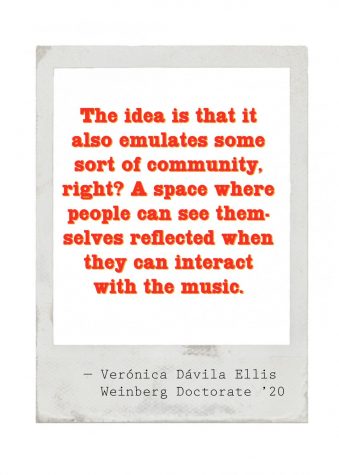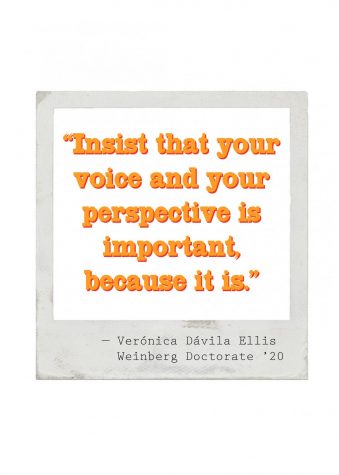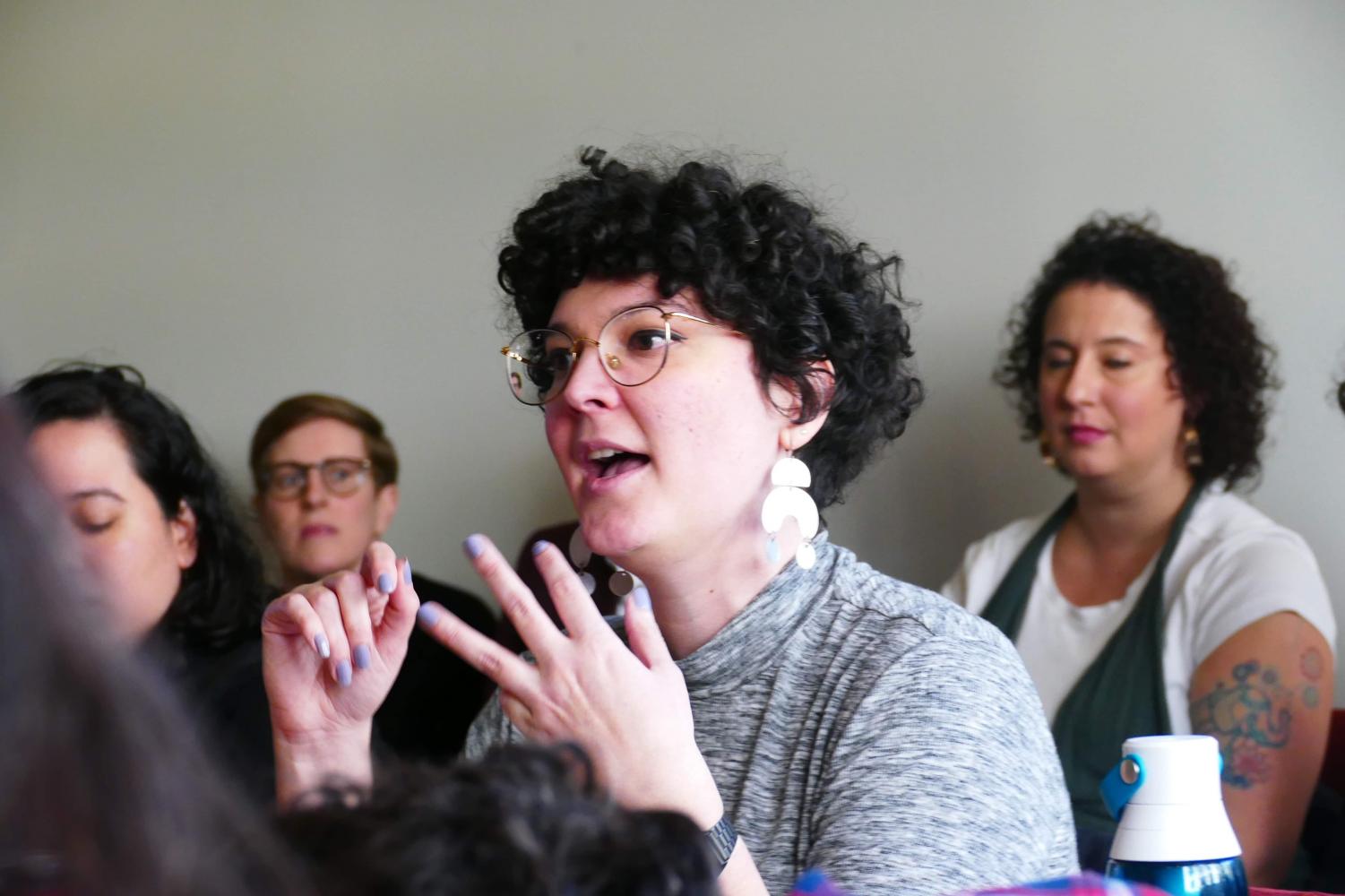Making Space
Q&A: NU alum and researcher Verónica Dávila Ellis talks Latinx music, representation
March 10, 2021
The Monthly
Verónica Dávila Ellis (Weinberg Doctorate ’20) is a scholar of sound. The Puerto Rican native grew up surrounded by music, and wrote their dissertation at NU about t how Dominican música urbana reveals facets of identity, race and gender amongst women and queer performers. Today, Dávila Ellis is a postdoctoral fellow in Latin American and Latino/a Studies at Smith College and co-founder of the transfeminist pop culture podcast, “The Plátano Diaries.” The Daily sat down with the alum and researcher to discuss upcoming projects and the importance of Latinx representation in academic spaces and beyond.
This interview has been condensed and edited for clarity.
The Daily: You’re currently working on a Scalar project that will help listeners and readers navigate the sonic work of Dominican música urbana artists. What will that look like?
Dávila Ellis: So Scalar is a digital platform that has an interactive text where people can read and also at the same time access multimedia or other sources. So the idea is that that project will accompany the academic book, and it will allow other audiences to also engage with the critical and theoretical work that I’m doing. Audiences can read my words and listen to the songs at the same time. It’s also a space where I’m going to put a lot of the materials that I have been accumulating this past six years of research.
 The Daily: Where do you get the motivation to keep going with a project like this, especially right now during such an unpredictable time?
The Daily: Where do you get the motivation to keep going with a project like this, especially right now during such an unpredictable time?
Dávila Ellis: It’s important for me to make this accessible, especially thinking about the community that has helped me develop my research project, they’re probably not going to read my book or dissertation. I can’t pretend that that is going to completely pay the effort or the energy, and the resources that they have shared with me, but it’s a step in that direction. The idea is that it also emulates some sort of community, right? A space where people can see themselves reflected when they can interact with the music.
The Daily: Your work has also been published in media outlets. You’ve written about a range of topics, from the role of music in the ousting of the Puerto Rican governor in 2019 to accountability for artists such as Bad Bunny. Have you ever received criticism for an article?
Dávila Ellis: I don’t think directly anyone has contradicted or challenged me. The annoying thing that happens is men trying to correct the things that I’m saying, which is connected to me being a feminist subject in the field researching popular music. So I got a lot of the, ‘I don’t agree with this thing. But you are right with this,’ and then a long paragraph saying the same thing back to me, because men always want us to tell them that they’re right.

The Daily: When you face judgment or challenges regarding your work, how do you keep moving forward?
Dávila Ellis: Sometimes this work is not considered worthy of academic spaces. This is not only work around popular music and reggaeton, but about Latinx people in general. Our stories or experiences don’t tend to be welcome. Going back to community, going back to ‘Why am I doing this, why is this important?’ is what allows you to keep pushing through. I have a lot of privilege. So I’m just trying to use that privilege for something good to the extent that I can. I’m also not a savior, I’m not here to speak about everyone’s Caribbean experience, not at all. But it’s complicated. My family still does not understand why I do what I do. But speaking about this music really unveils those class and racial dynamics that happen even in our own Latinx community. And that is why I’m doing this work, because I myself was raised, like, ‘Do not listen to this music, do not talk to these people.’ I’m like, ‘Wait, what? Why?’ Really diving into these cultural expressions allows us to talk about those dynamics
The Daily: What advice would you give to Latinx students who want to do research that explores their identity?
Dávila Ellis: Build your community. Look for professors, and researchers that have access to resources and spaces to hold you and support you. I think that was very important for my own trajectory. Insist that your voice and your perspective is important, because it is. It’s hard work. But it’s about challenging institutions, the status quo. We live in a country that is at war against us, so I think gather your people, gather strength and put your voice out there.
Read more from the March edition of The Monthly here.
Email: [email protected]
Twitter: @menitaaragon
Related Stories:
— Q&A: NU alumna Ashley O’Shay talks her documentary “Unapologetic”
— Weinberg alumna Solis Doyle mobilizes Latinx leaders with Biden’s Florida campaign

